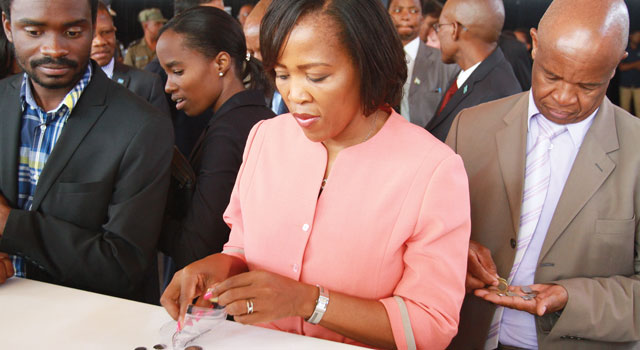A wave of financial woes currently shaking commercial banks has equally hit the National Development Bank (NDB), according to information trickling down from the head office.
As deduced from explanations tendered by varied economic commentators, including experts, what the banking sector is wallowing through is in essence, a reflection of a situation created by Botswana’s high rate of household defaults in repaying loans.
It has become public knowledge that banks are owed not less than P40 billion. This has dented their liquidity status and prompted Bank of Botswana to place an indefinite embargo on loans. The wave of financial woes has not drawn any distinction between NDB and commercial banks. It is a reality that the management, led by its Chief Executive Officer, Lorato Morapedi acknowledges, readily. While acknowledging this, she noted that it would be helpful for all to know that for NDB, the situation has been exacerbated by demands by an Act that established it.
“Liquidity situation on the part of NDB is exacerbated by a Funding Cap imposed on the NDB Act,” she said while shrugging off fears that the bank could be so immersed in financial difficulties that it may find it insurmountable to successfully pull itself through.
By its nature of business concept, NDB raises capital by borrowing from other financial institutional lenders hence Morapedi emphasizes that NDB could not escape the wave of financial uncertainty in the banking sector.
NDB depends largely on interest income for operational purposes and to achieve targeted levels of profitability. It is a case of whenever lenders sneeze, NDB catches a cold.
Banking experts’ analysis of the situation is that the four times reduction of bank rate during 2013/2014 time period did not help the prevailing situation. That the development had a big impact became apparent in the recently released half-year financial results of Botswana’s highest performing commercial bank, First National Bank of Botswana.
The bank said that “the lower interest rate has posed pressure on the bank interest income.” It noted, though, that the subdued performance did not hit them as a surprise. “The numbers were in line with the expectations, which reflect the ragged environment which has had impact on net interest margins,” it said at the launch of the financial results. It noted further that there is a likelihood to see more pressure on the margins owing to a recent central bank decision to cut the bank rate by one percentage point to 6.5 per cent.
The NDB financial results, which are expected to give a better picture of its performance, have not yet been released to the public. NDB management has hinted that their delayed financial results, which are now expected to be released to the public this month, may come out reflecting an operating loss.
The delay in releasing the results has been caused by the introduction of the bank’s new integrated banking system, which was put in place in February 2014. A Bank spokesperson has said that during the implementation of the new integrated banking system, it became apparent that a detailed audit between the old and new system had to be undertaken. Morapedi regards the current situation as temporary and is confident that the “robust” strategies management has put in place to recover the bank from prevailing market scenario shall deliver desired results, optimally.
Morapedi dismissed suggestions that NDB may have reached a stage where it is unable to deliver its mandate, owing to financial challenges. “Despite the difficult trading conditions the banking sector is wallowing in, NDB has not failed to meet its borrowing obligations and there is nothing that suggests a possibility of failure to continue doing that,” she said confidently.
The bank’s recovery initiative, which is said to be ongoing, is aimed at fast tracking its collection of monies it is owed. The high number of defaulting clients (on loan repayments), which is the prime factor in the present uninspiring banking liquidity status, has in part been attributed to slow recovery from the economic meltdown that engulfed the world from 2008 to 2010.
Other factors include four-year stagnation of public service salaries; higher than normal non-performing loans (NPL’s); sustained drought conditions; a risky business start-up sector and; low interests rates.
NDB’s dominant sector/business is drought prone agriculture, a sector proven sensitive to natural disasters and diseases such as foot and mouth. NDB admits that from year to year, such factors have affected production and ultimately the ability of its clients to repay.
Yet another risky area that NDB covers, in line with its mandate, is start-ups enterprises, which are generally understood to be high risk.

